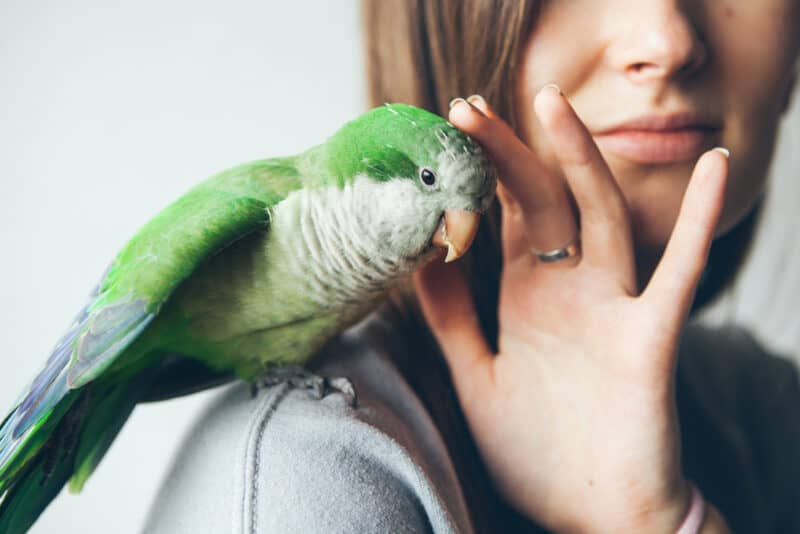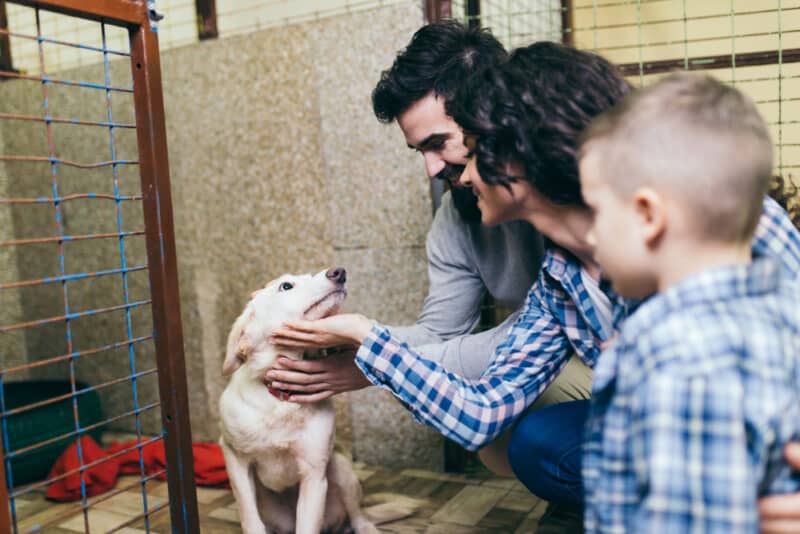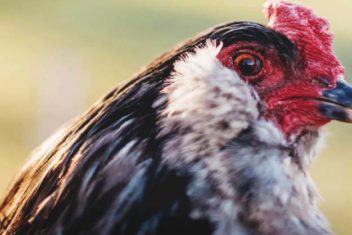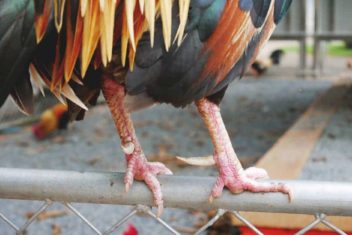It’s hard not to feel happy when you see a puppy or kitten, but for some people, pets are an essential lifeline to support their mental health. An Emotional Support Animal (ESA) is a pet that offers emotional assistance for mental health disorders and other problems.
Professionals train service dogs to assist their owners with daily tasks and ensure they can safely navigate the public space. On the other hand, ESAs are there to provide love and comfort.
Why Use an Emotional Support Animal?
ESAs aren’t there to help those with sight issues move more freely or those who use a wheelchair to access difficult areas. They don’t need to perform specific activities; they are there for companionship and stress relief.
People with the following health conditions can benefit from an ESA:
- Anxiety
- Depression
- ADHD
- Autism
- Chronic illnesses
- PTSD
- Bipolar disorder
- Dementia
You don’t need a dog if you feel as though an ESA can help you. Many species can serve the role of a support animal.
Here is your guide to the different types of ESAs and how to find the right pet for your lifestyle.
The Laws Regarding ESAs

The most common pet that people get as an ESA is a dog.
Lots of people have dogs, but that doesn’t mean that you can automatically consider your dog an emotional support animal. To be given the title of ESA, you need to visit a medical professional who will give you documentation confirming that you require an ESA.
You can obtain this documentation from a personal care physician, psychiatrist, or psychologist.
If you want an ESA to live on a property with you, you’ll usually be required to show evidence that your animal has been approved by your doctor. Whether you’re renting a homestead or living in an urban area, your landlord can make an exception to a no-pet policy to accommodate your needs.
The Fair Housing Act (FHA) states that animals necessary to assist someone with a disability must be allowed. However, the landlord can require an additional deposit and might have other stipulations about noise and the animal’s behavior.
The Air Carriers Access Act (ACAA) no longer stipulates that you should be able to travel with an ESA on commercial flights. ESAs are considered a pet and are treated in the same way by some airlines. Other airlines still allow support animals.
Once you have your letter in hand, you’re somewhat more protected. Many places are required to allow your animal, even if they don’t typically allow pets.
However, ESAs aren’t service animals, and they aren’t protected in the same way. Service animals (usually dogs) are highly trained, whether that’s in helping with sensory issues, mental health, or signaling.
Airlines have their own rules around ESAs, and food establishments like restaurants and grocery stores won’t allow them at all.
That doesn’t mean that ESAs aren’t valuable to you, but they don’t have the same access as service dogs.
Common ESA Animals
While most people think of dogs, any kind of animal can technically be an emotional support animal. Here are some of the best options:
Dog

Dogs usually take up the most room and require the most training, but they’re multi-purpose and can also act as livestock guardians or watchdogs on the homestead. They can do all kinds of things to help their humans and they can travel easily with you.
You don’t want your dog to suffer from a lack of exercise or mental stimulation, so make sure to choose the right breed for your lifestyle and home situation. If your children want to have a dog but you work full-time, it’s important that you discuss the care schedule.
You need to set fixed times for feeding, walking, and cleaning the dog’s supplies. Add into that the cost and time of grooming and care. Then, you must be sure you’re interacting, walking, and playing with your dog. They need interaction and mental stimulation.
Don’t feel limited to dogs, though. There are other wonderful options for ESAs that you can consider if you cannot have a dog because of time commitments or allergies.
Cat

Another popular choice for an ESA is a cat. You can leave them at home with food and water for much longer than some other animals. They don’t need the same constant stimulation and interaction as a dog.
Still, cats are social animals who love engaging with their owners, so they can be perfect ESAs if you want a pet that can live in any size of space but you want something less demanding than a dog.
If you travel frequently or work away from home during the day, a cat is a great pet as they are independent.
Cats can live up to 20 years with the proper care. Plus, they are quiet most of the time, so you don’t have to worry about angering the neighbors with noise.
The challenge is that they can be difficult to take into public, so some serious training is required. Plus, many people are allergic.
Ferret

Adopting a ferret might not be the first thing you think of when you look for an ESA, but ferrets are excellent pets for people who want a quirky, loyal companion. These animals are fun to play with, so they can be great for little children.
To travel with them, you need to check with your vet about state laws and vaccination requirements.
Ferrets are incredibly intelligent, as independent as cats, and you can train them. They’re small enough to carry with you to all kinds of places.
With a ferret, you can simply pop them in your bag and take them wherever you go. You get to experience a unique bonding that many people don’t have with their pets.
The downside is that they can be harder to litter box train than a cat and they have a distinct fragrance.
Parrot

Parrots take a different approach from something more traditional such as canines. They can be incredibly intelligent, and you can even teach some to speak.
Companion birds have been proven to ease anxiety or depression, and help those with PTSD.
Just remember that parrots require regular cleaning of their living quarters, and they have special mental and physical requirements. You can’t just throw them in a cage and forget about them.
They need attention, training, and care.
A well-trained bird can unobtrusively go with just about anywhere.
Rabbit

Long gone are the days when people only thought to bring home a rabbit for Easter. These friendly, fuzzy critters can be amazing ESAs.
If you have a large homestead, you can keep your bunny outside during the warm months so they can enjoy the fresh air and open space. Or, they’re perfectly happy living indoors with a nice place to snuggle up at night.
Letting them live indoors is great for bonding as you can cuddle them, and they become incredibly attuned to their humans. Rabbits are also good for children as they are friendly and easy to train.
They can’t always be reliably potty trained, so take that into consideration if you plan on taking them into public.
Guinea Pigs

If you want an emotional support animal that’s smaller than a rabbit, but similar in care and personality, guinea pigs are ideal. You need to have at least two guinea pigs in one home because they are highly social and require the other guinea pig as company.
Check the size of the enclosure to ensure that your guinea pigs have enough space to run around when they aren’t hanging out with you.
You can also take them outside when it’s warm so they can nibble on the grass, carry them with you as you travel, and their joyful noises are enough to relax anyone.
Tips for Picking an ESA
When you’re deciding on which animal to choose for your ESA, it’s important to think about cost and maintenance. You also need to consider whether they’re the right match for your personality.
You want your ESA to be well-behaved if you take them in public or have friends and family visiting. Even though pets like guinea pigs and rabbits are easier to tame than dogs and cats, it’s still important to think about how they can handle health checks.
It’s vital that you feel comfortable handling your pet because you need to take them to the vet and hold them for a health examination. So, don’t get an ESA that you are scared to tame, as this will harm the animal’s health.
As well as being easy to handle, the next thing to consider is your personality traits.
Personality Traits
Are you a tactile person? Or do you like to get immersed in work for hours? If you like to socialize all day, you shouldn’t get a dog that needs several walks daily. Instead, a cat or rabbit could work if you have the time in your schedule.
Your emotional support animal should also reflect your personality traits, such as being upbeat or calm. You don’t want a high-energy dog if you’re more of the hang-out and read-a-book type.
When raising an animal, you’ll need to figure out their routine and what they enjoy. But you also need to be present for them. You can’t just forget about your pet except when you need them. Remember, they need you.
For example, a guinea pig is a perfect choice if you’re calm and want a small pet. Alternatively, if you want to stay on top of your fitness goals and have your ESA with you when hiking outdoors, a dog is the ideal animal.
Remember to think about your own needs so you can give your attention and care to your ESA when they come home.
Adopt, Don’t Shop

Whether your doctor has told you that an ESA is a good idea for your mental health or you’re looking into options for your child who experiences ADHD or autism, adopt instead of shopping at a pet store.
There are thousands of animals looking for a new home, and some pet stores keep pets in restricted, unhealthy conditions. If you can, try to adopt an ESA from a shelter in your area.
Then, get your ESA some cozy items like blankets, food, and bedding.
Don’t forget to do your research on your pet’s needs and double-check you have the space and time to look after them properly. That way, you can enjoy raising your pet and giving them a good life while experiencing the benefits of having an ESA in your life.












